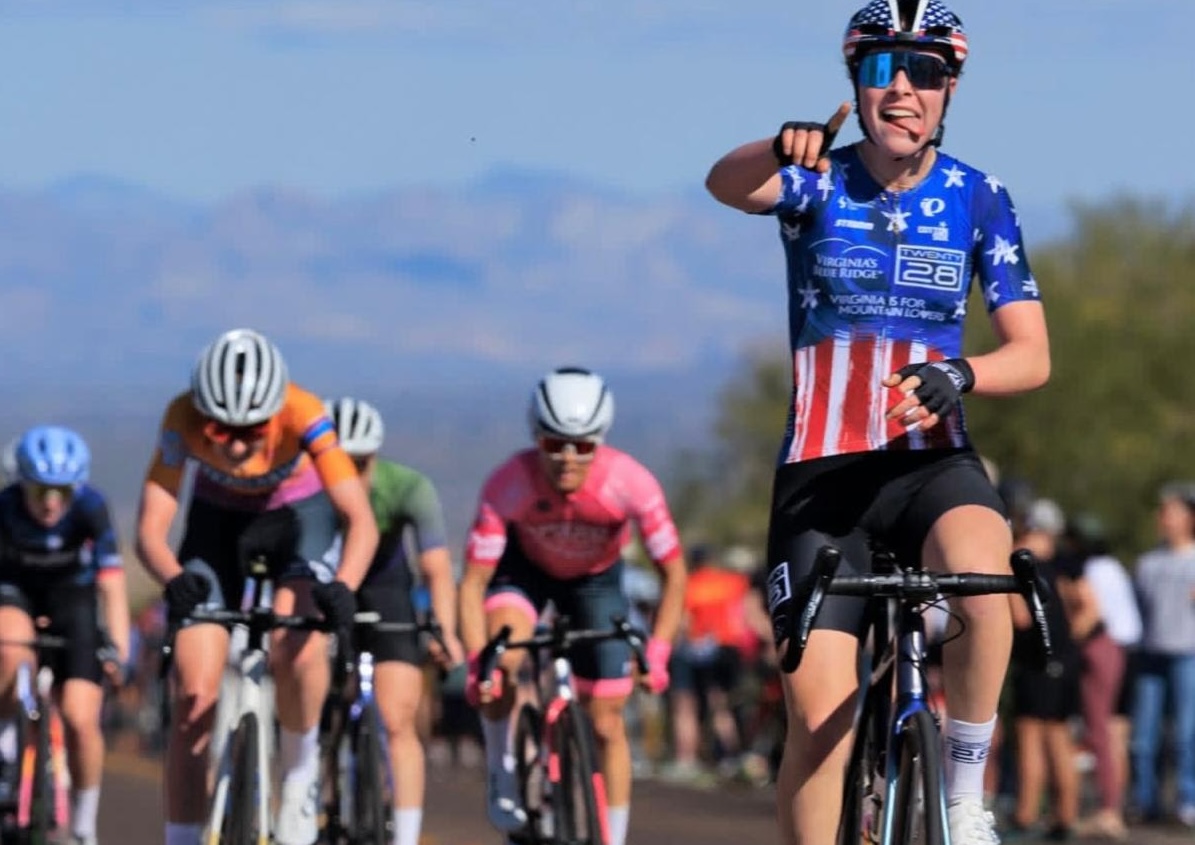Cycling's rich list: Who are the sport's highest earners?
As the salaries of pro cyclists continue to rise, Cyclingnews reveals how much the sport's biggest names actually earn
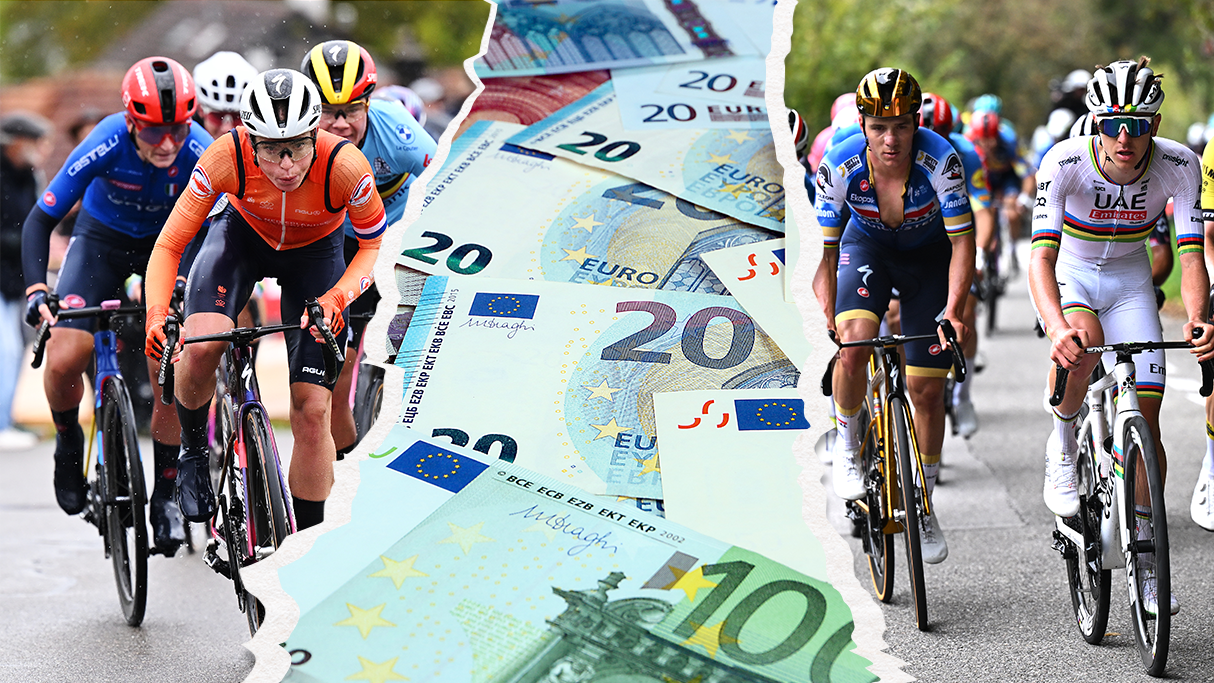
The latest race content, interviews, features, reviews and expert buying guides, direct to your inbox!
You are now subscribed
Your newsletter sign-up was successful
Nine Monuments, four Grand Tours, closing in on 100 professional victories, Tadej Pogačar is so dominant and complete that his annual UAE Team Emirates-XRG salary of €8.2m is more than what seven WorldTour teams spent on their entire 30-man teams in 2024.
In compiling cycling’s 2025 rich list, Cyclingnews has been able to ascertain that Pogačar’s base salary is more than €3m more than the next set of wealthiest riders – and that’s excluding win bonuses, private sponsorship agreements and additional fees.
By combining publicly available information with Cyclingnews’ industry insights, we’re able to reveal the current top-10 highest earners, as well as a select few other standout names.
The total combined revenues of the 35 professional men’s cycling teams in 2025 exceed €730m, with an estimated 45% – €330m – spent on rider salaries. The typical salary for a WorldTour professional is around €250,000, but there are believed to be more than 60 riders on €1m contracts, with roughly half earning at least €2m.
“Salaries for the top guys haven’t exactly doubled, but have gone up significantly in the past few years,” one agent said.
The gender pay gap is clearly also still a substantial issue in cycling, where of the 60 riders on €1m contracts, our research suggests there is not a single female rider among them.
It should also be noted that there is still a disparity between the minimum salary received by women's WorldTour riders compared to their male counterparts. A female rider classed as self-employed can have a base-level salary of €62,320 compared to a male rider's €72,404 total. Meanwhile, employed women's WorldTour riders have a minimum wage of €38,000 compared to the men's WorldTour's lower limit of €44,150. It seems that the disparity is amplified as we escalate the pay scale toward the sport's super-rich.
However, the picture has hugely improved overall for female riders, with a handful now close to the magic million figure, which we'll delve into in more detail below.
All of the estimated amounts listed below only refer to a rider’s base salary and do not take into account additional payments from sponsorships and appearance fees.
Top-10 cycling rich list
Tadej Pogačar, 26, UAE Team Emirates-XRG: €8.2m
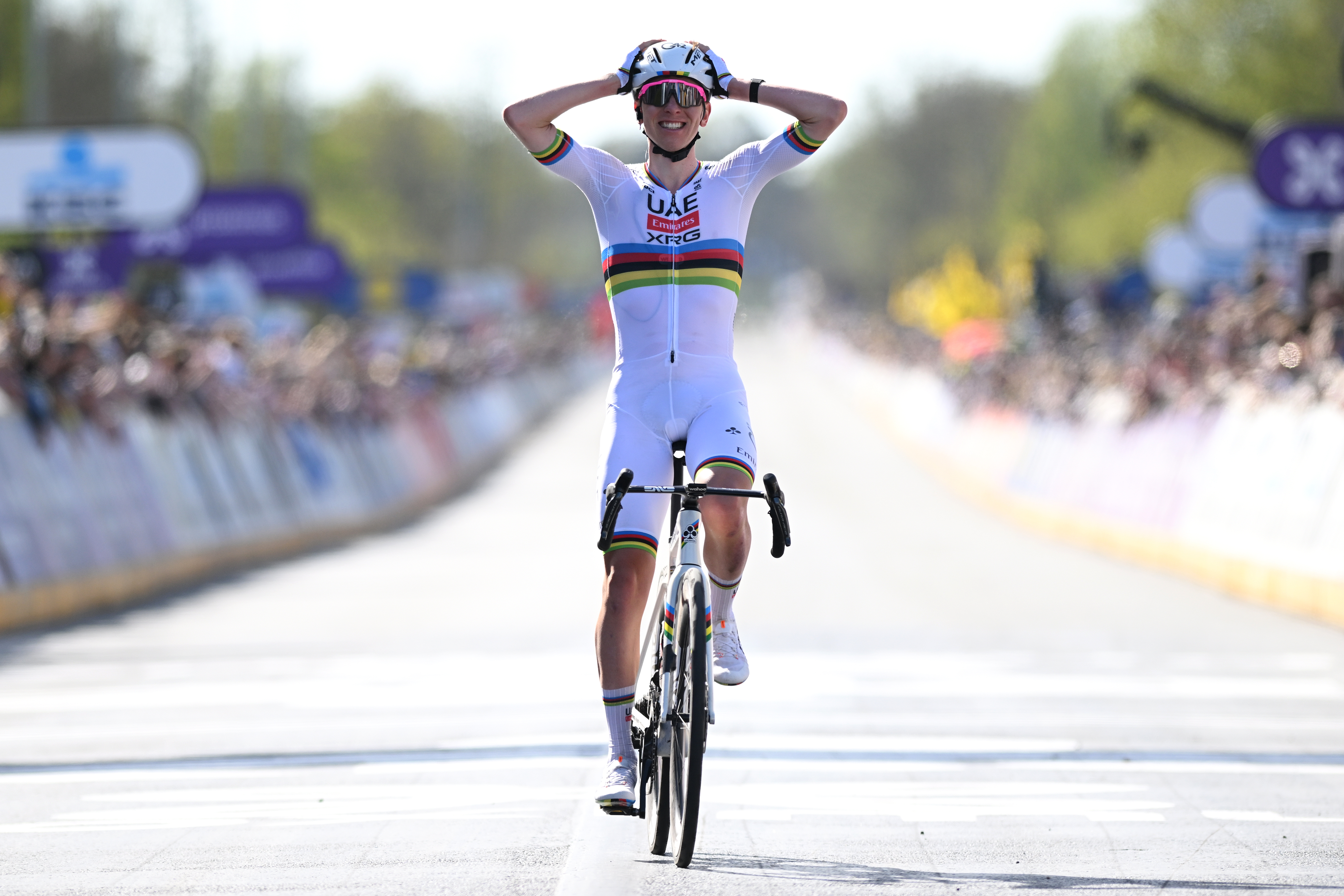
It is no surprise to anyone that the three-time Tour de France winner, the man who many believe is on the path to becoming the greatest male cyclist of all time, tops cycling’s rich list.
Previously earning a base salary of €6m, as reported by La Gazzetta dello Sport in January 2024, Cyclingnews understands that the nine-time Monument winner now earns €8.2m per annum.
On top of that figure, Pogačar has private sponsorship deals with the shoe brand DMT, the I feel Slovenia tourism board, and the Slovenian water company Jana. Some of these ambassadorial contracts are thought to earn him in excess of €100,000, and he can demand similar amounts for appearing in criteriums, such as the Tour de France Singapore Criterium that he rode last November.
Remco Evenepoel, 25, Soudal-QuickStep: €5m
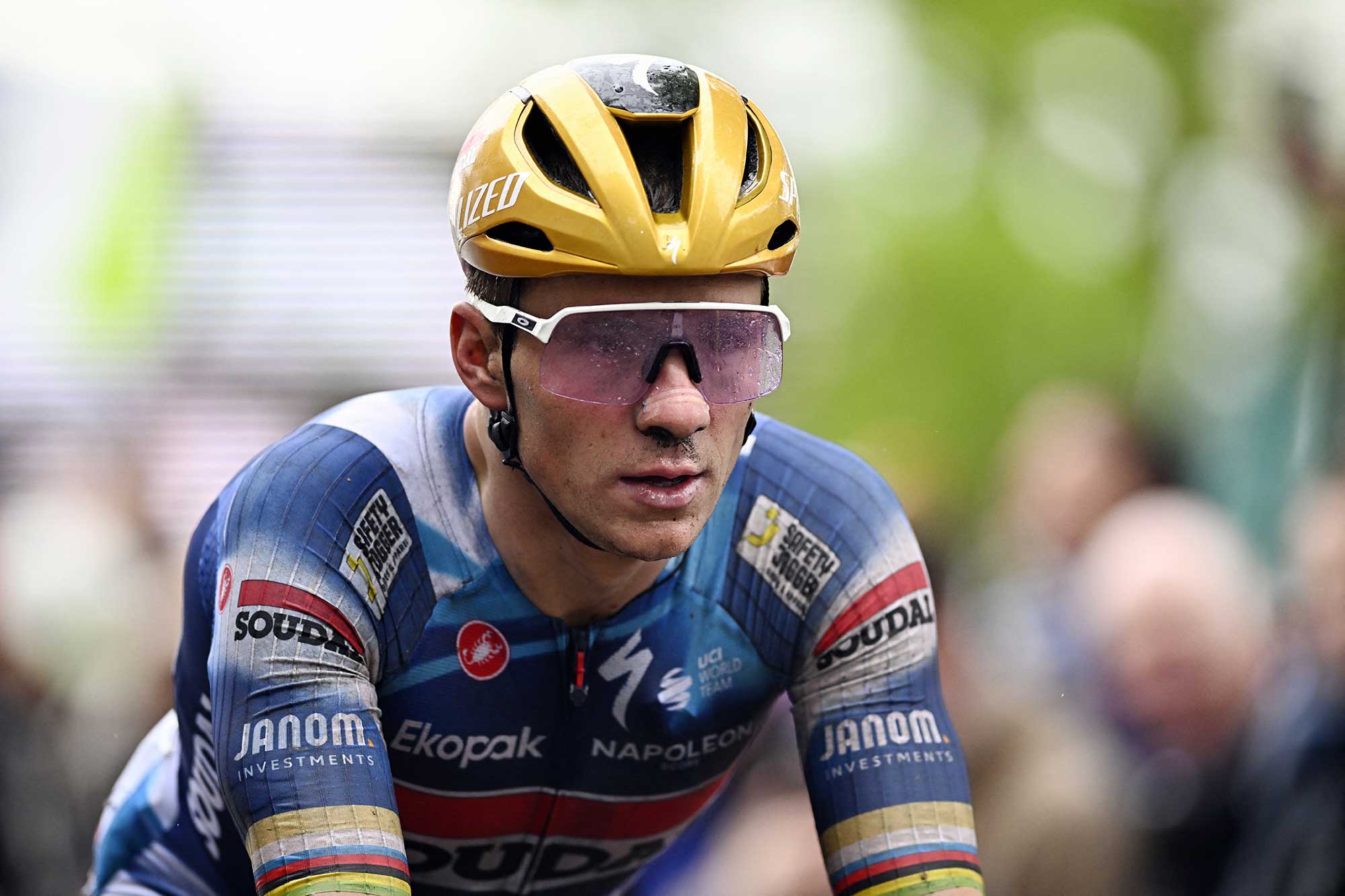
Soudal-QuickStep are known within the cycling industry for being rather frugal, but when Evenepoel won two Olympic gold medals last summer, shortly after finishing third in his maiden Tour de France, the Belgian team realised they needed to act to keep their superstar happy.
What’s more, Belgian press, including Sporza and Het Laatste Nieuws, reported that Red Bull-Bora-hansgrohe were willing to pay up to €10m to buy Evenepoel out of his contract, as well as giving QuickStep significant compensation for doing so.
In the end, Evenepoel signed a fresh contract to stay with the team he turned pro with, improving his salary from €2.8m to €5m per year, with Specialized contributing to his wage. He did not, however, extend his duration with the team, and his current contract will expire at the end of the 2026 season.
Like others, Evenepoel also enjoys a number of private sponsorships that pay him extra: he is Specialized’s main brand ambassador now that Peter Sagan has retired; he has a deal with Pizza Hut in Belgium; and he is also supplied a car from a local Audi dealership.
Mathieu van der Poel, 30, Alpecin-Deceuninck: €4.8 - €5m
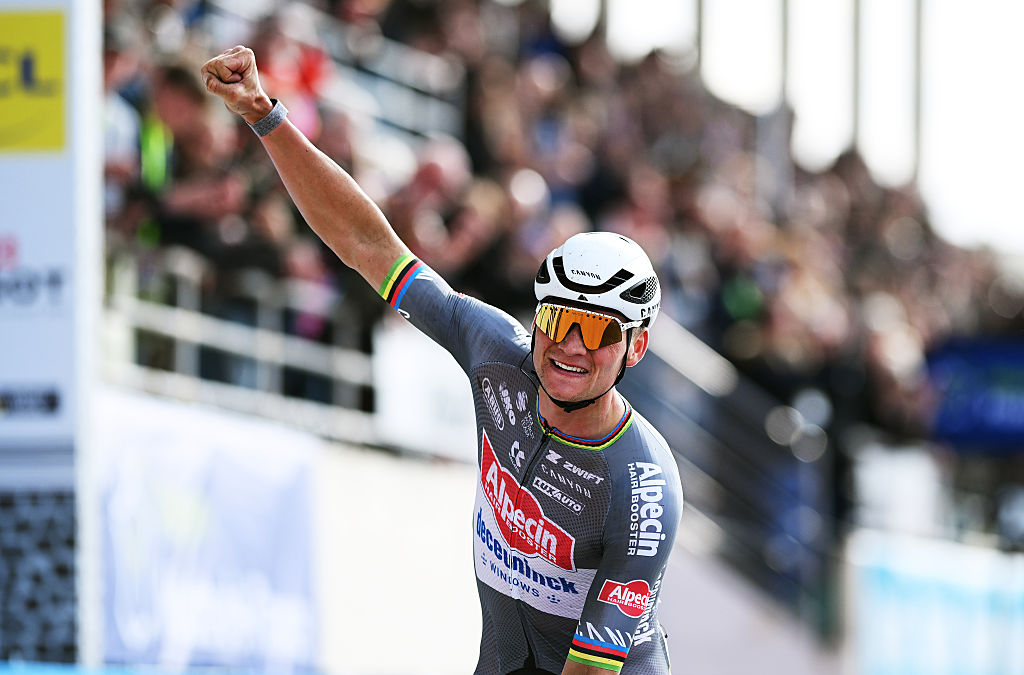
The only man who has been able to regularly get the better of Tadej Pogačar in one-day races, Van der Poel, has also been rewarded with a pay rise in the past year. His came last March when he extended his contract with Alpecin-Deceuninck until the 2028 season, at which point Cyclingnews understands that his salary jumped from €4m to just shy of €5m. At the same time, the Dutchman also signed a 10-year contract with Canyon, but it is not known how much the German bike brand contributes to Van der Poel’s pay packet.
The multi-disciplinarian star, who has won seven cyclocross world titles, has been a long-time ambassador of Oakley sunglasses, and in January of this year, watch brand Richard Mille began sponsoring him, too. His partnership with sports car brand Lamborghini is thought to be a purely assets arrangement – no money changes hands, but he is given a free vehicle.
Similarly to Pogačar, Van der Poel can command six-figure fees for such sponsorships and criterium appearances, meaning his overall annual salary possibly surpasses €6m.
Jonas Vingegaard, 28, Visma-Lease a Bike: €4.5m
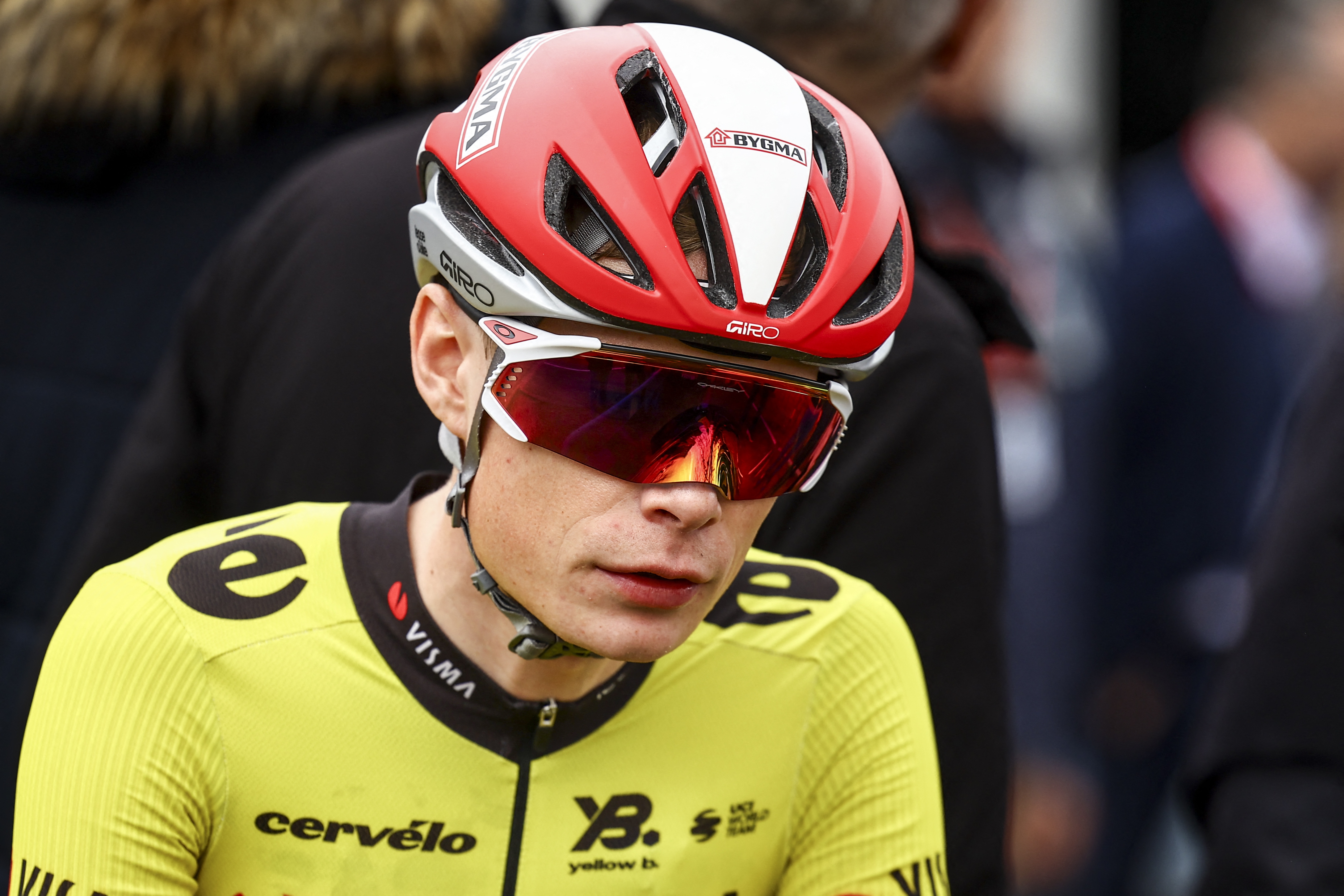
Winner of two of the past three Tours de France, Vingegaard is Visma-Lease a Bike’s highest earner, pocketing €4.5m each year – although sources said that Vingegaard’s annual salary would increase through win bonuses in the event he is victorious in the Tour.
The Dane’s value has remained steady in the past 12 months, but earlier this year, he did sign a personal sponsorship deal with Bygma, a construction materials supplier in his home country. As part of the agreement, Vingegaard sports a customised red helmet.
Primož Roglič, 35, Red Bull-Bora-hansgrohe: €4.5m
Four times a Vuelta a España champion, Roglič’s wage at Red Bull-Bora-hansgrohe is almost double what he was earning in his latter years with Jumbo-Visma, before his switch to the German team 18 months ago. With Jumbo, he was said to be earning roughly €2m, but it is understood that Red Bull pays him a base salary of around €4.5m, with bike brand Specialized covering part of his payment.
It was widely reported when he was leaving Visma that the Dutch team requested compensation of €3m for terminating the contract early by two years, and that the Slovenian himself paid part of that amount.
His contract with Red Bull will expire at the end of the 2026 season, by which time the 2023 Giro d’Italia winner will be 37. It is highly unlikely that he will be able to match his current salary, if indeed he decides to carry on racing.
Tom Pidcock, 25, Q36.5 Pro Cycling: €4.5m
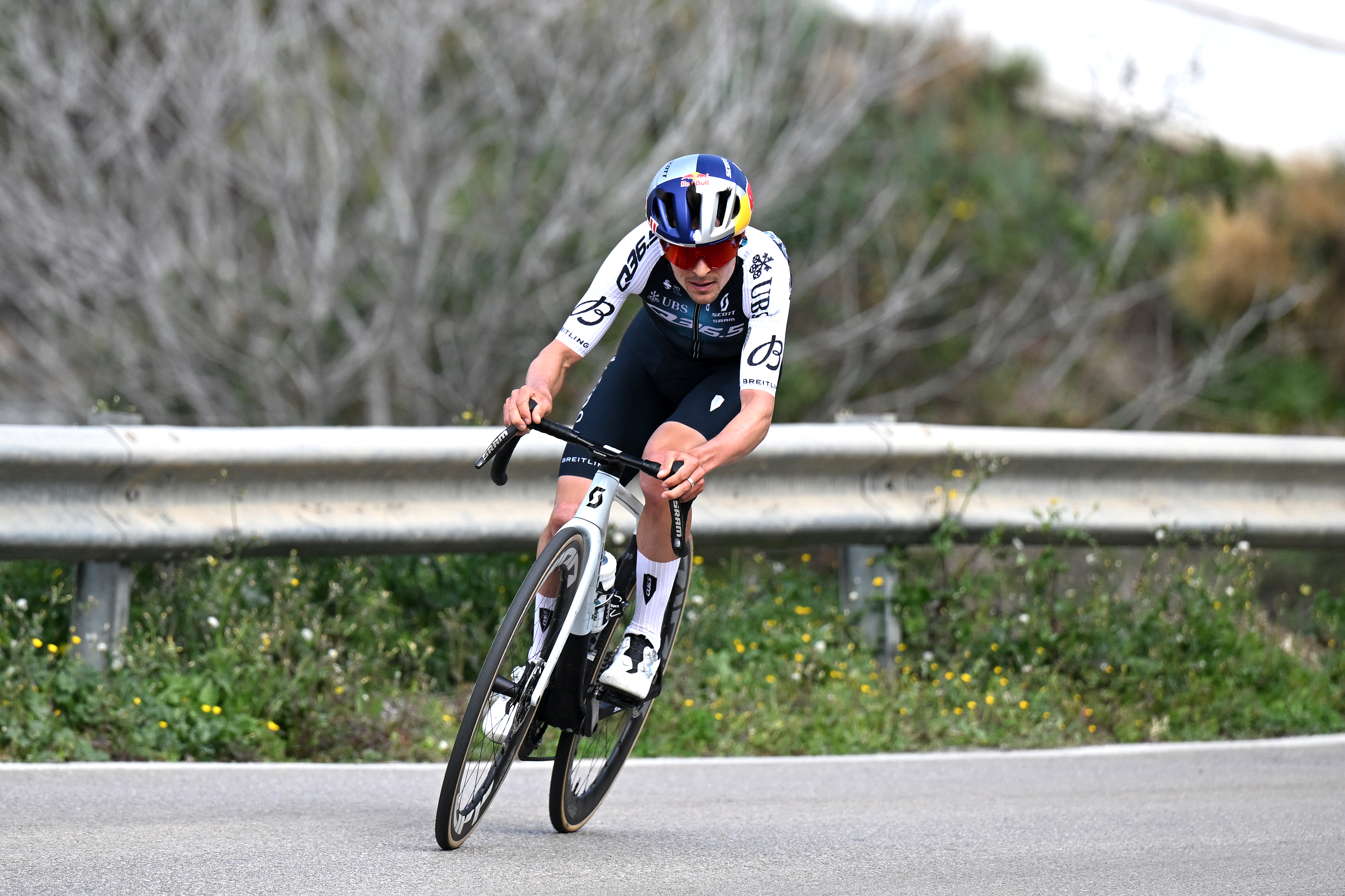
Once Ineos Grenadiers’ best bet to be the next British rider to win the Tour de France, the Yorkshireman left Ineos mid-contract in the winter to join second-tier team Q36.5 Pro Cycling.
He was on an annual salary of €4m at Ineos, and also earned win bonuses of €1m for winning any WorldTour race, World Championships or Olympic Games; he duly defended his mountain bike Olympic title last August.
Despite dropping down a division, Pidcock’s personal fortune has not taken a hit: Cyclingnews’ information suggests he earns €3.5m from Q36.5, while Ineos will continue to pay him around €1m a year for the next three seasons. One insider remarked that Pidcock “is still one of Ineos’ best earners.”
Additionally, Pidcock has private ambassadorial deals with Red Bull UK and Pinarello, swelling his annual income even further.
Wout van Aert, 30, Visma-Lease a Bike: €3.8m
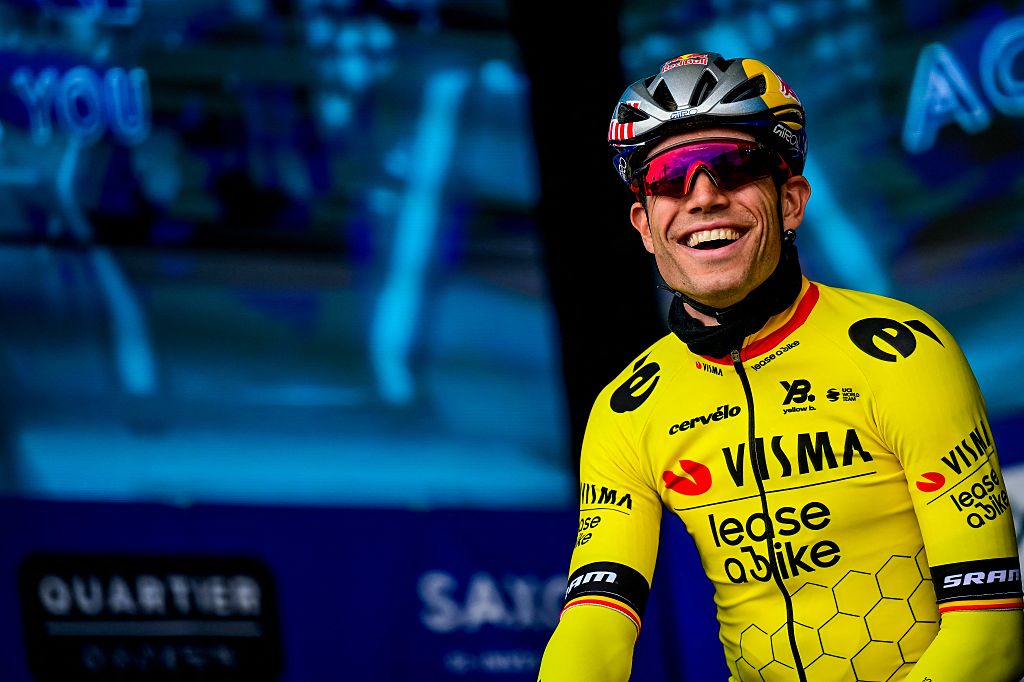
The Belgian signed a contract until the end of his career with Visma last autumn, but various sources reported that the nine-time Tour de France stage winner’s salary didn’t increase much from the €3.5m he was previously earning.
Since 2018, Van Aert has had a private sponsorship and customised helmet deal with Red Bull, but that doesn’t pay as well as many believe, as it’s administered through the regional headquarters in Belgium, rather than via the global brand.
Jasper Philipsen, 27, Alpecin-Deceuninck: €3.2m
Regarded as the best sprinter in the world in the past few seasons, the Belgian increased his wage significantly when he signed a four-year extension with Alpecin-Deceuninck last summer. After previously picking up €2m a year, he now earns €3.2m per annum until the end of the 2028 season.
Although some top riders, such as Remco Evenepoel and Mathieu van der Poel, are managed by family members, Philipsen was unusual in that he had always negotiated his own contracts. In securing his latest contract, though, the nine-time Tour de France stage winner employed Alex Carera – Tadej Pogačar’s agent.
Chris Froome, 39, Israel-Premier Tech: €3m
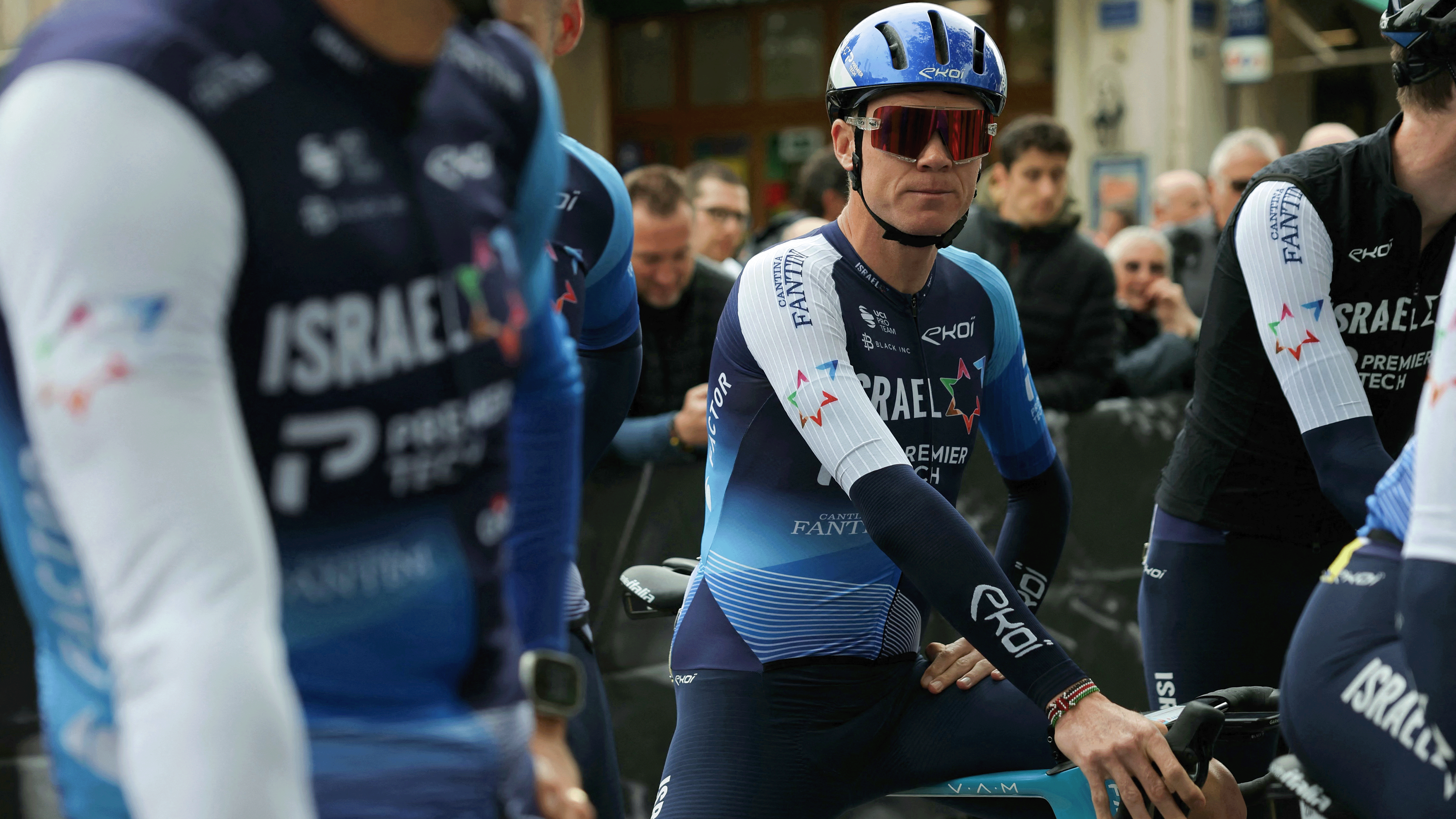
Despite not having won a bike race since the 2018 Giro d’Italia, Chris Froome remains one of cycling’s highest earners. When he left Ineos Grenadiers and signed a five-year deal with Israel Start-Up Nation in 2021, it was reported that he was on an annual salary of €5m.
At the 2023 Tour de France, Israel-Premier Tech’s owner Sylvan Adams famously said that the four-time Tour de France winner had “absolutely not” been value for money, and he strongly hinted that he would be happy if Froome cut short his contract.
But multiple sources have told Cyclingnews that Froome has been both unwilling to retire earlier than was planned, and neither has he been willing to take a significant pay cut, and thus is still being paid at least €3m a year. Some believe he is still earning even more. His contract expires at the end of this season.
Mads Pedersen, 29, Lidl-Trek: €2.8m
The former world champion would probably have at least a couple of Monuments to his name had he not been racing in the same era as Tadej Pogačar and Mathieu van der Poel, but the Dane still makes the top-10 list.
It was in the summer of 2022 when Pedersen last signed a contract extension with the team he turned pro with, and he inked a deal worth almost €3m a season. His contract is up for renewal at the end of this season, and there has been some talk about him seeking opportunities elsewhere, especially as Jonathan Milan has been selected ahead of him for the Tour de France.
Other notable salaries
Adam Yates signed a contract worth €2.7m with UAE Team Emirates at the beginning of 2023, as previously reported by La Gazzetta dello Sport, with his contract up for negotiation at the end of the current season. His teammate, João Almeida, earns a similar figure, but the Portuguese is on a heavily-incentivised bonus contract, meaning his final earnings over a season can be significantly more. UAE’s other GC weapon, Juan Ayuso, signed an extension with the team in 2022 to run until 2028, with a base salary thought to be around €2.2m; his father, who works in the financial industry, negotiated his contract.
Lidl-Trek’s two highest earners are Pedersen and Tao Geoghegan Hart. The latter signed a three-year contract, earning just north of €2.5m, when he joined from Ineos Grenadiers 18 months ago. Jonathan Milan, Lidl-Trek’s other star rider, signed at the same time but on a much lower wage – the Italian’s pockets around €1m before bonuses.
Jai Hindley, winner of the 2022 Giro d’Italia and a stage winner in the Tour de France the following year, signed a contract extension with Red Bull-Bora-hansgrohe last spring, taking his salary to just over €2.5m. His compatriot, Ben O’Connor, signed terms with Jayco-AlUla last spring, before he finished fourth at the Giro d’Italia and second at the Vuelta a España and World Championships. It is estimated that he earns just under €2m.
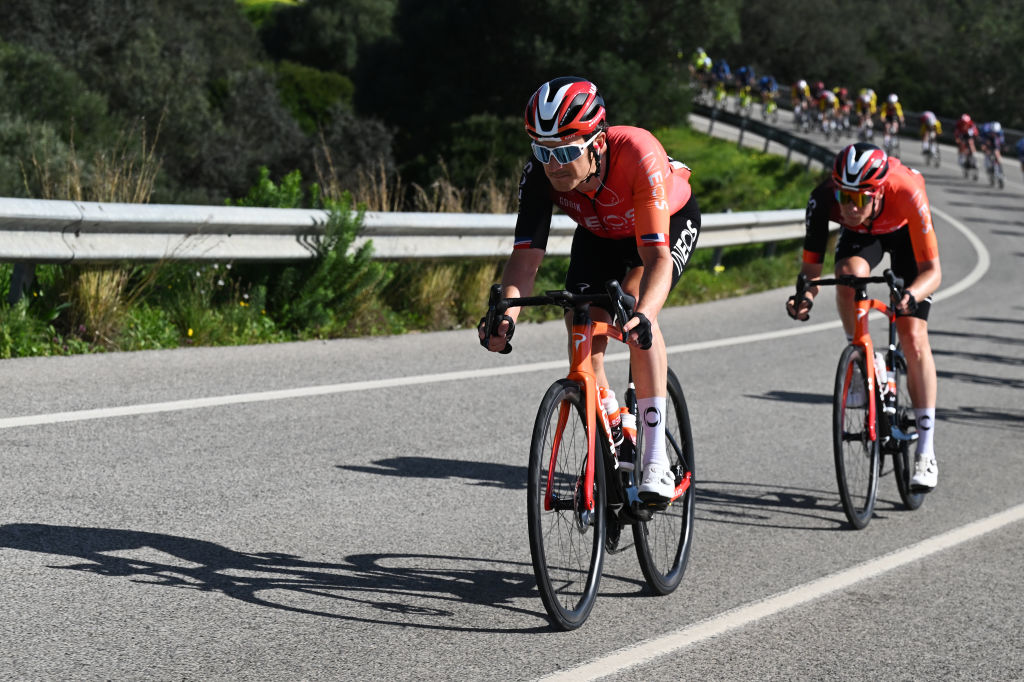
For most of the past decade, Geraint Thomas has been one of Ineos Grenadiers/Team Sky’s biggest earners, with it being widely reported that he was previously paid €3.5m on an annual basis. But Cyclingnews has been told that when the 2018 Tour de France champion extended his time with the British WorldTour team by two years at the end of 2023 – his final contract before retirement – he took a significant pay cut on the acceptance that he will be 39 when he competes in his 14th and final Tour de France this summer. It is now understood that he earns around €2m.
His teammate, Egan Bernal, signed a five-year contract with Ineos Grenadiers, thought to be worth just a little bit less than €3m, in January 2022, but weeks later, he suffered life-threatening injuries in a training ride crash. Although Bernal has admirably returned to competition and Grand Tour racing, he has not yet demonstrated that he is capable of winning the biggest races again. Bernal’s wage was €3m, and we understand it’s something similar today. Elsewhere, the British team pay Filippo Ganna and Carlos Rodríguez slightly above the €2m marker.
Biniam Girmay is by far and away Intermarché-Wanty’s biggest earner at €2m, with Lenny Martinez at Bahrain Victorious also receiving €2m. Likewise, Red Bull-Bora-hansgrohe duo Maxim Van Gils and Aleksandr Vlasov are on €2m.
The one million euro female rider
Salaries in the women’s WorldTour peloton are much less than in the men’s bunch, with the majority of non-neo-pros earning between €80,000 and €100,000, compared to their male counterparts who typically earn between €250,000 and €300,000. However, it is estimated that around 20 women are on more than €300,000, with a few nudging towards the €1m marker.
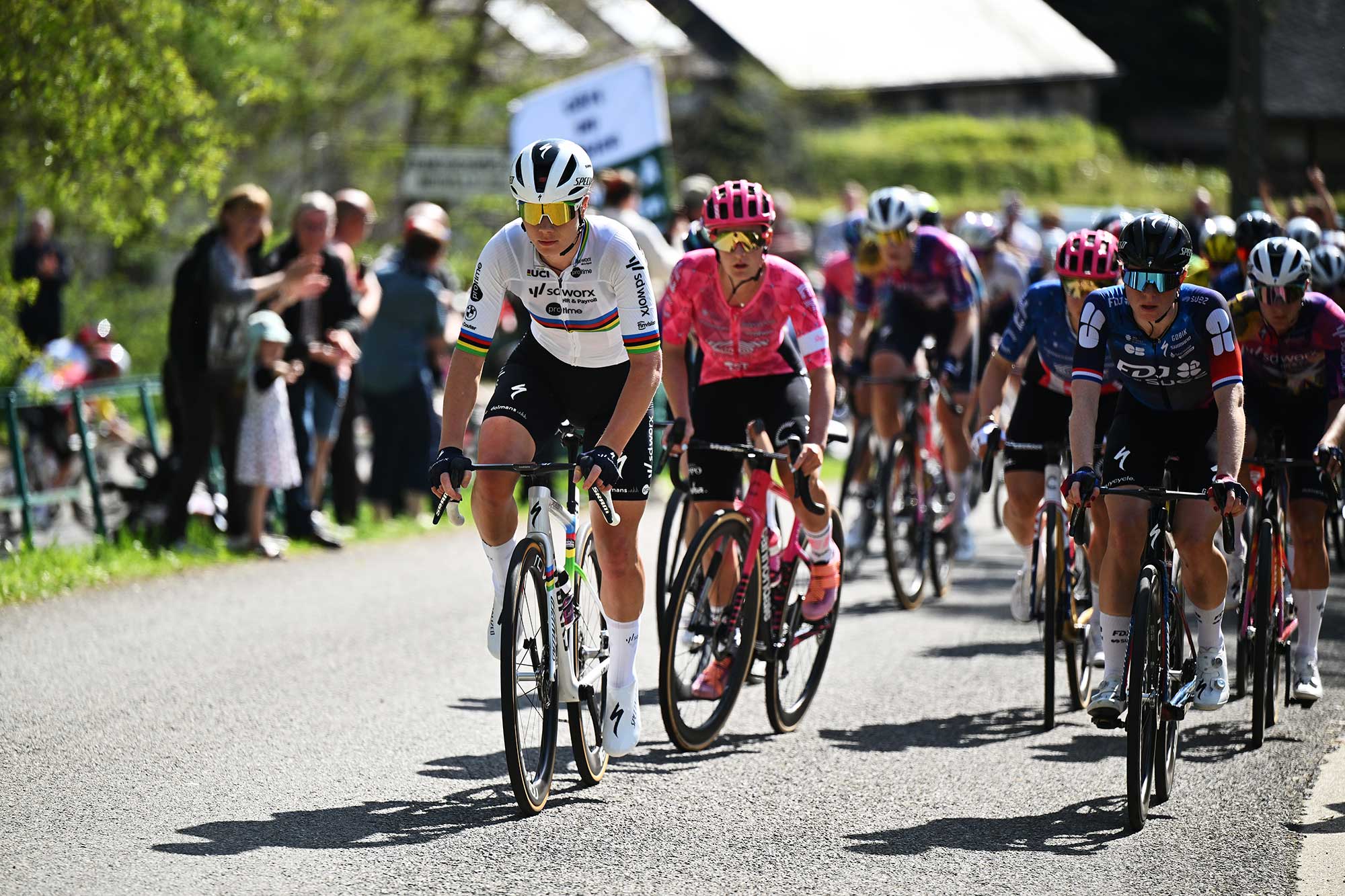
Cyclingnews understands that Demi Vollering, whose career is managed by her partner, Jan de Voogd, had been requesting a salary of €1m when she left SD Worx-Protime last year. Sources said that FDJ-Suez got close to that amount, but didn’t quite reach it, meaning the one million euro barrier has not yet been broken. Her former teammate, Lotte Kopecky, is also thought to be on around €900,000, with Elisa Longo Borghini earning slightly less at UAE Team ADQ.
Despite winning the Tour de France Femmes last year, Kasia Niewiadoma-Phinney is earning less than the aforementioned. Cyclingnews research indicates that the Polish rider’s base salary has jumped to around €600,000, with Canyon covering part of her wage.
In the bracket below sit the likes of Lorena Wiebes, Pauline Ferrand-Prévot, Marianne Vos – who signed a lifetime contract with Visma-Lease a Bike recently – and Elisa Balsamo, who are all thought to earn close to €500,000. American duo Chloé Dygert and Olympic road race champion Kristen Faulkner are also thought to earn similar amounts.
You must confirm your public display name before commenting
Please logout and then login again, you will then be prompted to enter your display name.
